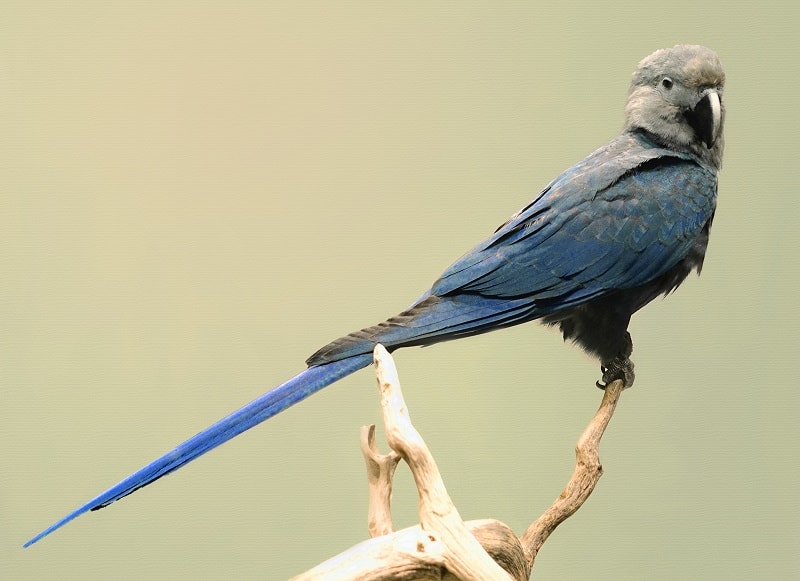Sheep farming has a rich history dating back centuries, with various breeds prized for their unique characteristics and contributions to industries like wool production and meat. Among these breeds are the Merino sheep, renowned for their exceptionally fine wool, and the Rambouillet sheep, valued for their dual-purpose qualities. Other notable breeds include the Columbia sheep, known for their versatility, and the Dorper sheep, prized for their meat quality and hardiness.
Merino Sheep ($200 to $10,000)

Merino sheep are highly valued for their fine wool, often regarded as some of the best in the world. The price of Merino wool can vary significantly based on factors like fineness, crimp, and length, with finer grades commanding higher prices. Merino wool is prized for its softness, warmth, and versatility, making it sought after by luxury fashion brands and textile manufacturers. The value of Merino sheep also extends to their meat, which is considered flavorful and tender, adding to their overall worth in the agricultural industry.
Rambouillet Sheep ($300 to $2,500)

Rambouillet sheep are recognized for their sturdy constitution and rich, superior wool. Fiber diameter, staple length, and uniformity are some of the characteristics that affect the price of Rambouillet wool; fleeces that are finer and more consistent tend to attract higher prices. Rambouillet wool is prized for its toughness and elasticity, which makes it perfect for a variety of items, including upholstery and clothes. Additionally, Rambouillet sheep are dual-purpose, meaning they are also raised for meat production, further enhancing their economic value for farmers.
Columbia Sheep ($200 to $1,500)
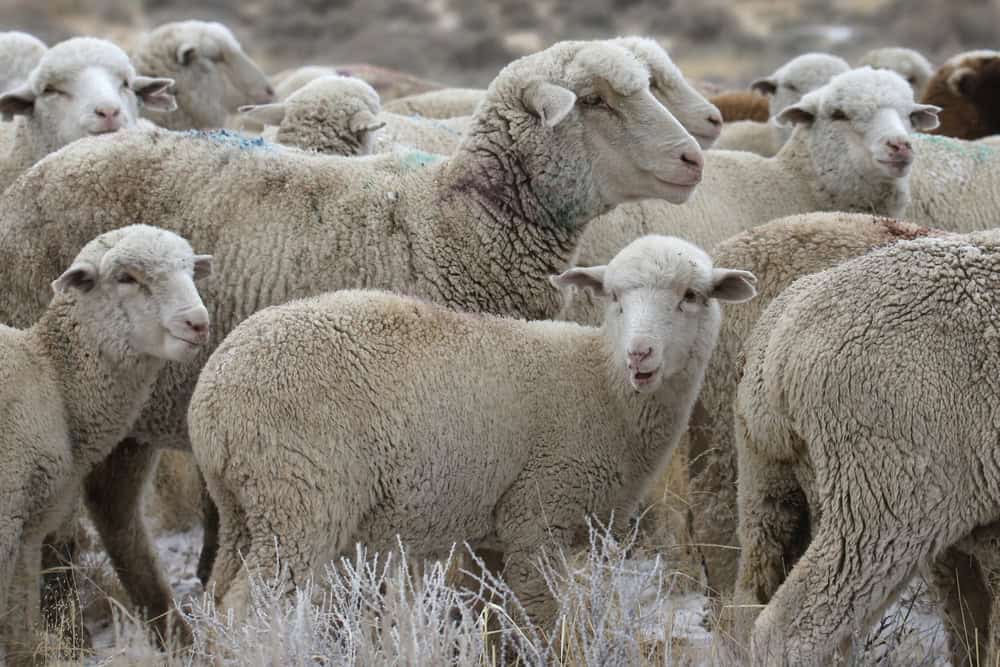
Columbia sheep are highly valued for their ability to produce high-quality meat as well as wool. The ability of Columbia sheep to yield a thick, dense fleece of medium-grade wool that can be used for a range of textile applications is what makes them valuable. Additionally, their meat is prized for its quality and tenderness, which appeals to both commercial breeders and consumers. Because of their reputation for resilience and versatility, Columbia sheep are a good investment for farmers looking for livestock with a variety of uses.
Targhee Sheep ($250 to $1,800)

Targhee sheep are valued for their soft, fine wool and excellent meat production. The market price of Targhee wool is determined by various criteria such as fiber diameter, crimp, and staple length. Higher-quality grades of the wool fetch higher prices. Targhee wool is highly prized for its warmth and resilience, which make it ideal for a variety of textiles and clothing. Also, Targhee sheep are known for their fast growth rates and efficient feed conversion, adding to their value for meat production and agricultural sustainability.
Corriedale Sheep ($150 to $1,000)
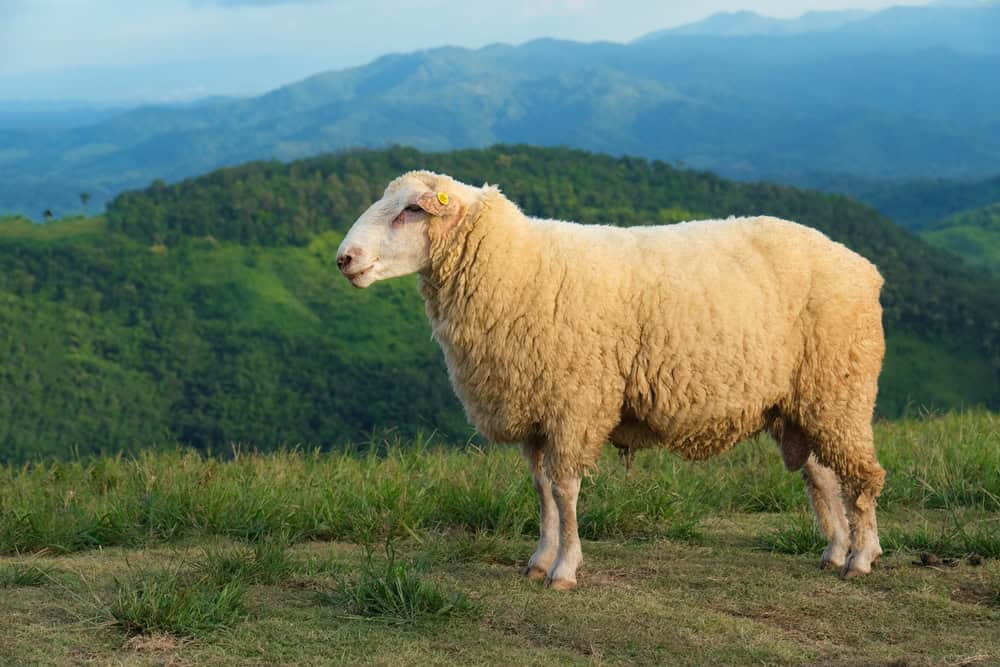
Corriedale sheep are prized for their dual-purpose qualities, producing a medium-grade wool and flavorful meat. Its fiber diameter, crimp, and staple length influenced the value of Corriedale wool, with consistent and uniform fleeces fetching higher prices. Corriedale wool is valued for its versatility, used in everything from apparel to felting projects. Moreover, Corriedale sheep are known for their ease of management and adaptability to various climates, enhancing their economic value for farmers worldwide.
Lincoln Sheep ($400 to $3,000)
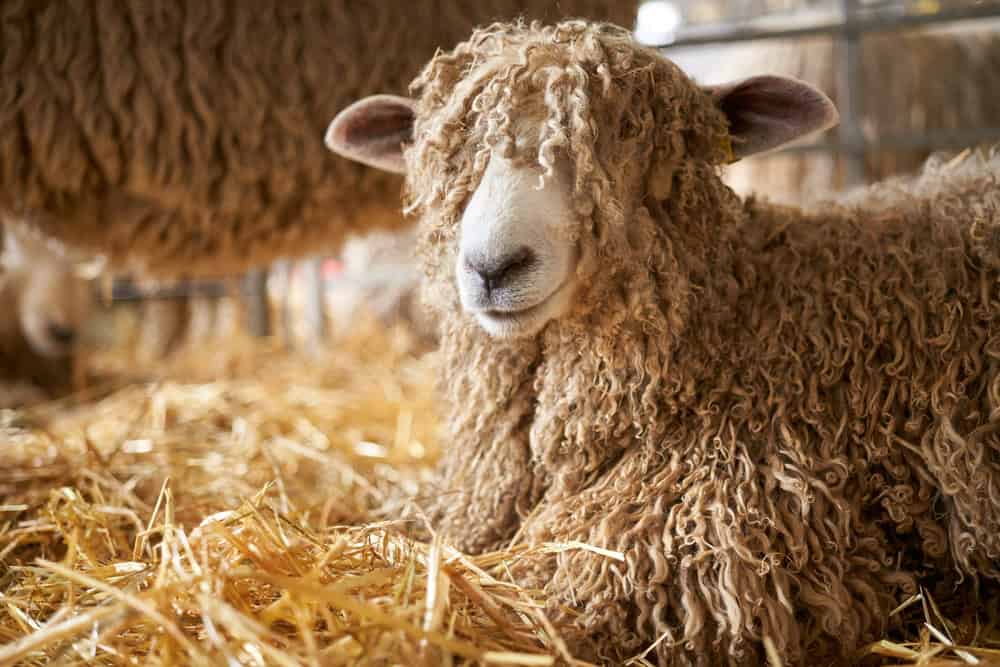
Among the heaviest and longest of all sheep breeds, Lincoln sheep are prized for their long, glossy fleece. Lincoln wool’s length, strength, and luster all affect its price; longer and finer fibers command higher prices on the market. Lincoln wool’s luster and durability make it highly valued for usage in rugs, upholstery, and luxury fabrics. They are also prized for producing both meat and wool because of their huge stature and strong constitution.
Romney Sheep ($250 to $1,500)
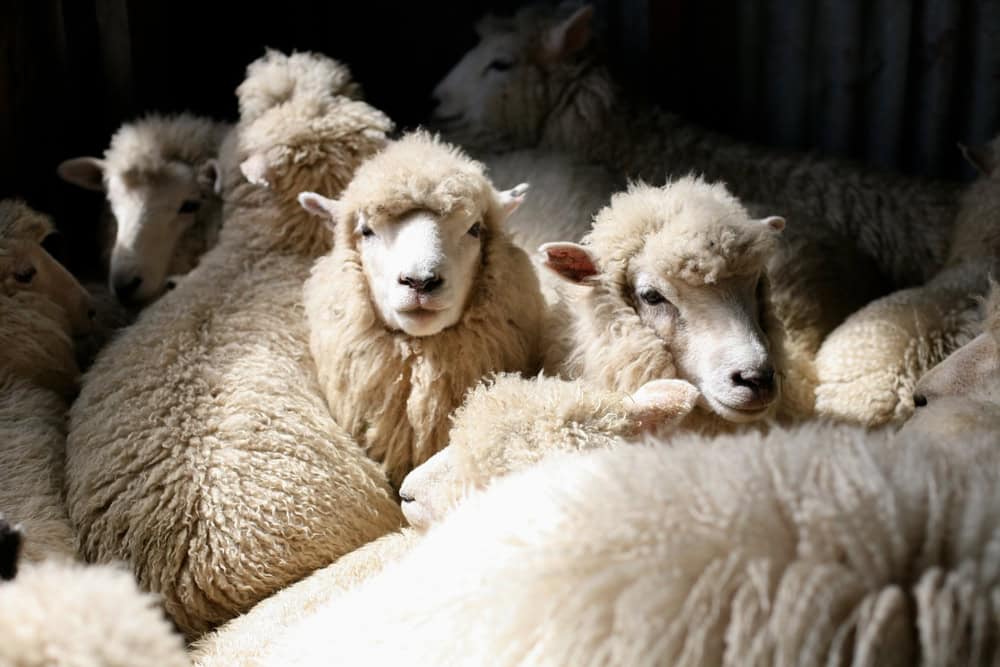
Romney sheep are appreciated for their adaptable wool and meat producing qualities. They are also noted for their exceptional mothering instincts and hardiness, which adds to their overall appeal for sustainable farming practices. Its wool prices are determined by factors such as fiber diameter, crimp, and staple length, with finer and more uniform fleeces commanding higher prices. Romney wool is valued for its durability and elasticity, used in a wide range of products from clothing to carpets.
Cotswold Sheep ($300 to $2,000)
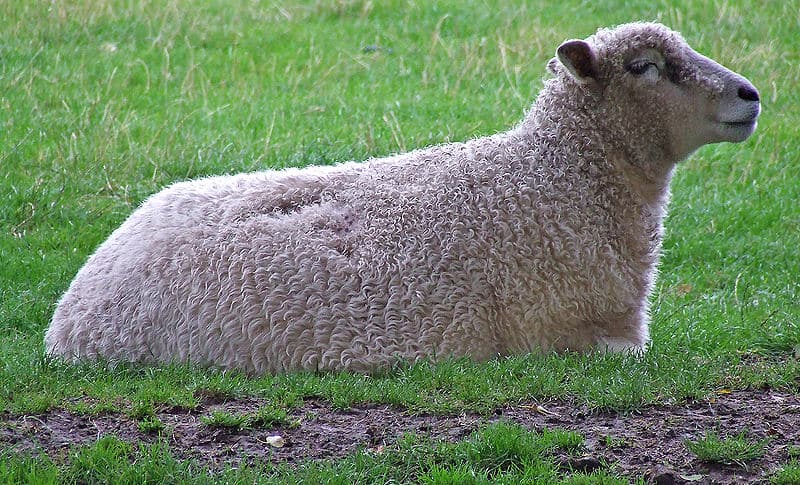
Cotswold sheep are prized for their long, curly wool, known as “Cotswold fleece,” which is highly valued by hand spinners and artisans. They’re known for their gentle temperament and ease of handling, adding to their appeal for small-scale farmers and fiber enthusiasts. The price of Cotswold fleece is influenced by its length, luster, and crimp, with longer and finer locks fetching premium prices. Cotswold wool is sought after for its unique texture and ability to create luxurious yarns and textiles.
Border Leicester Sheep ($200 to $1,500)
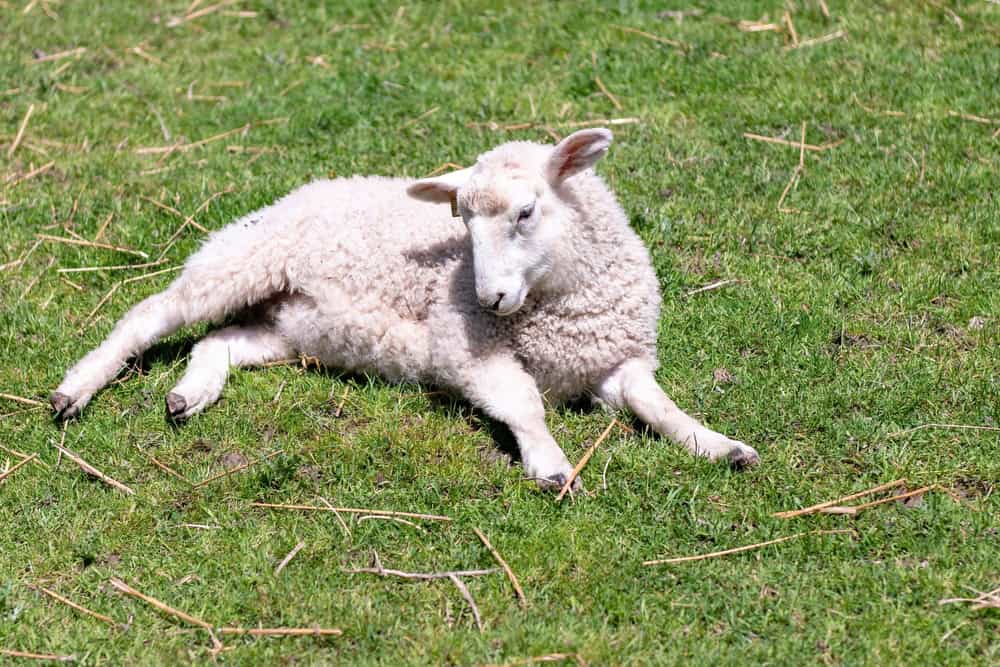
The ability of Border Leicester sheep to produce meat and long, silky wool makes them valuable. Strong and glossy, Border Leicester wool is highly valued for usage in everything from blankets to apparel. Factors like fiber diameter, staple length, and uniformity affect the price of Border Leicester wool; fleeces that are finer and more consistent tend to fetch higher prices. In addition, the prolific nature and maternal instincts of Border Leicester sheep are well-known, which raises their overall market worth for commercial breeders.
Suffolk Sheep ($150 to $1,000)
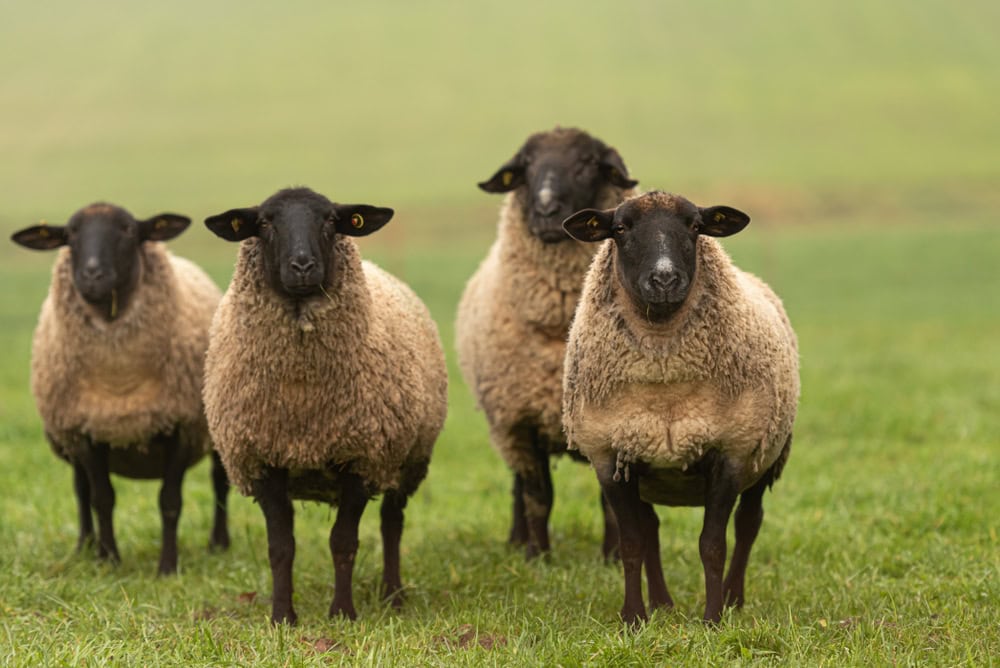
Suffolk sheep are prized primarily for their meat production qualities, known for their lean, muscular bodies and flavorful meat. Their value lies in their efficient feed conversion, fast growth rates, and high carcass yields, making them desirable for commercial meat production. Suffolk lamb is favored by chefs and consumers for its tenderness and succulence, adding to the breed’s economic value in the agricultural industry. Additionally, Suffolk sheep are known for their hardiness and adaptability to various management systems, making them popular among livestock producers globally.
Dorper Sheep ($200 to $1,500)
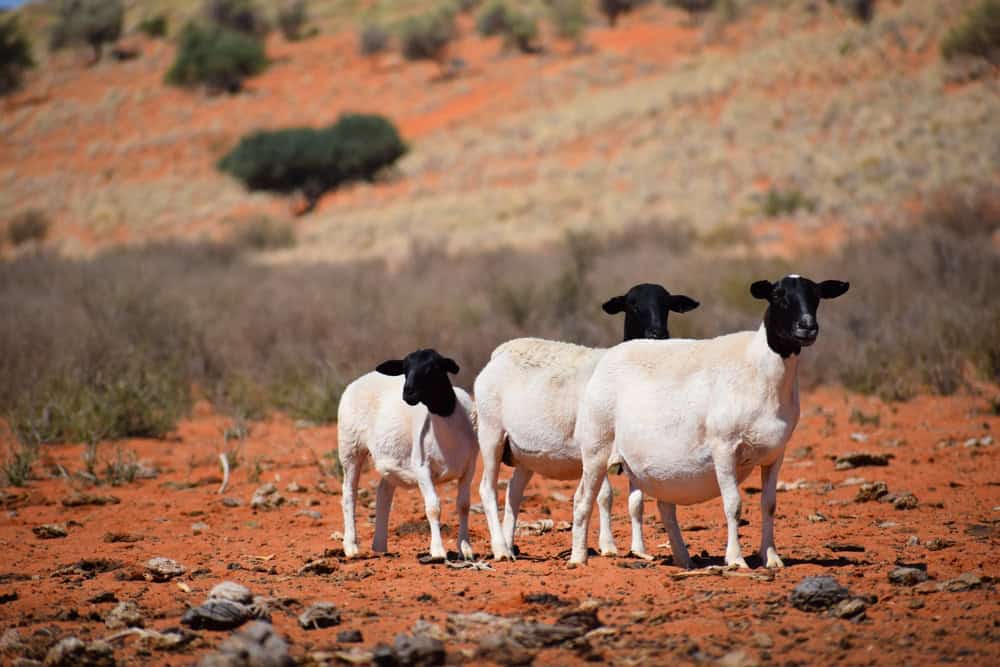
Dorper sheep are valued for their meat production qualities and hardiness in various environmental conditions. Its tender, flavorful meat is favored, making it a popular choice among consumers and commercial breeders. Plus, Dorper sheep are known for their adaptability to extensive grazing systems and resistance to parasites, contributing to their overall economic value for sustainable farming practices.
Hampshire Sheep ($150 to $1,000)

The main reason Hampshire sheep are valued is their ability to produce meat; they are noted for developing lean muscles and converting feed efficiently. Hampshire sheep is a popular option for premium cuts because of its juicy, well-marbled meat. They are also popular among livestock farmers looking for an economical way to produce meat because of their easy-to-manage disposition and docile nature.
Shropshire Sheep ($200 to $1,500)
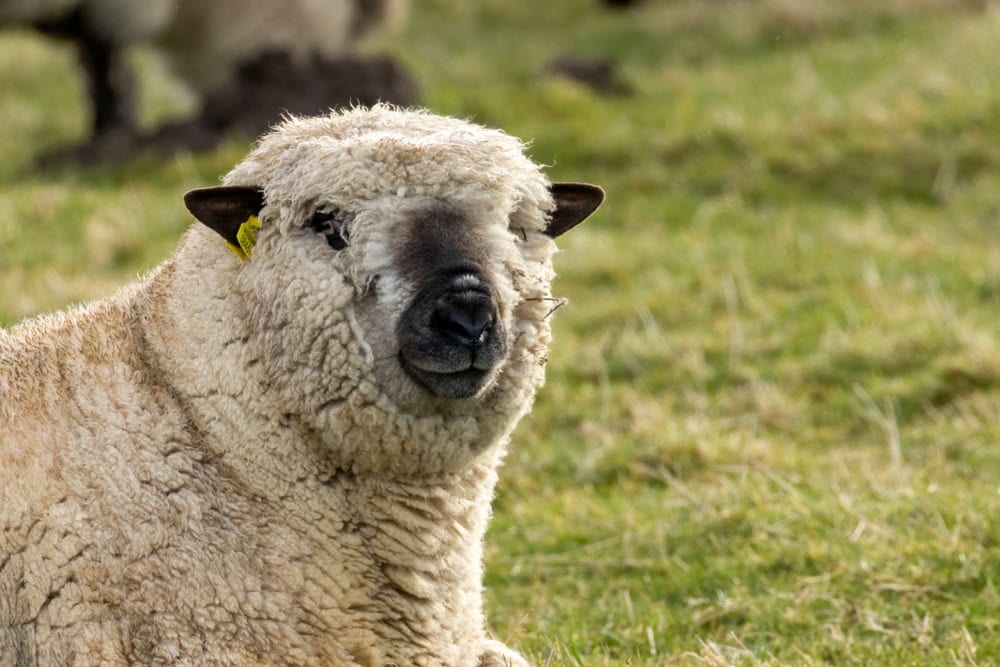
Shropshire sheep, known for their medium-grade wool and flavorful meat, are valued for their wool and meat production qualities. Its price can range from $200 to $1,500 per head, depending on factors such as wool quality and market demand. Shropshire wool is prized for its softness and versatility, used in a range of textiles and crafts. In addition, Shropshire sheep are known for their maternal instincts and adaptability to various management systems, contributing to their overall value for both wool and meat production.
Southdown Sheep ($150 to $1,000)

Southdown sheep have great meat production qualities, as they produce soft, delicious meat with efficient feed conversion. It is praised for its succulence and adaptability in culinary applications, making it popular with both chefs and customers. Furthermore, Southdown sheep are noted for their simple lambing and good mothering qualities, which increase their worth in commercial meat production.
Cheviot Sheep ($200 to $1,500)
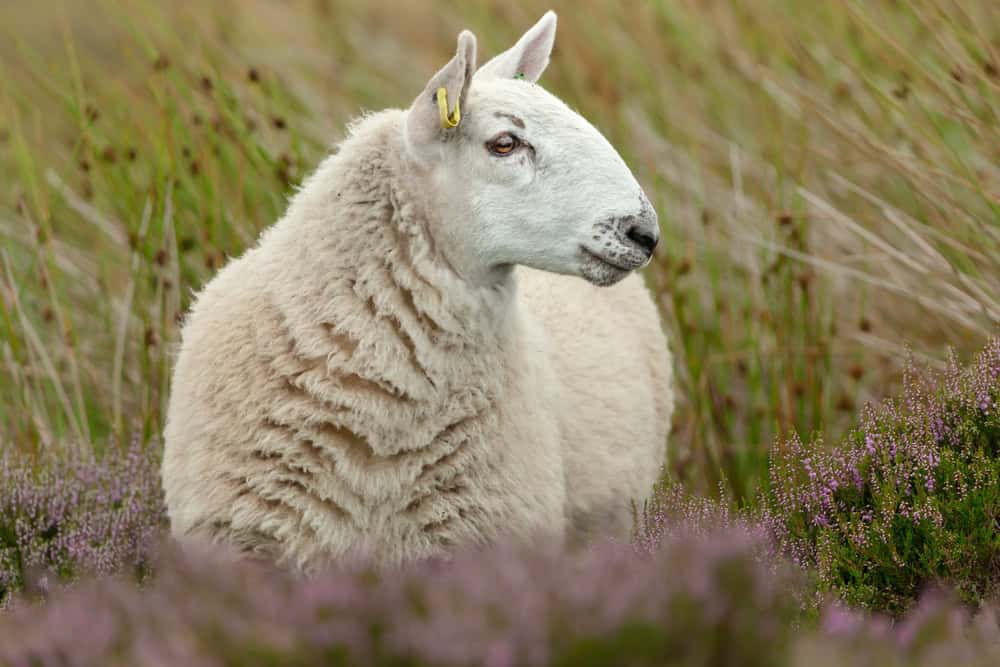
Cheviot sheep are valued for their hardiness, adaptability, and versatile production capabilities. They are are known for their ability to thrive in rugged landscapes and harsh climates, making them valuable for extensive grazing systems and conservation grazing initiatives. The Cheviot wool is prized for its strength and resilience, used in a range of products from carpets to tweed fabrics.
This article originally appeared on Rarest.org.
More From Rarest.Org
Birds are some of the most beautiful animals in the world and also one of the most vulnerable. These majestic creatures are often indicator species and alert humans of the changes in the environment. Read more.
Los Angeles, the epitome of glitz and glamour, is home to some of the most exclusive and rich neighborhoods in the world. From the iconic luxury of Beverly Hills to the coastal opulence of Malibu Colony, these neighborhoods define extravagant living with their sprawling mansions, panoramic views, and upscale amenities. Read more.
Austin’s dining scene is vibrant and diverse, offering a range of culinary experiences to satisfy every palate. From upscale steakhouses and seafood restaurants to innovative farm-to-table eateries and modern Mexican cuisine, the city boasts a wide range of dining options. Read more.

